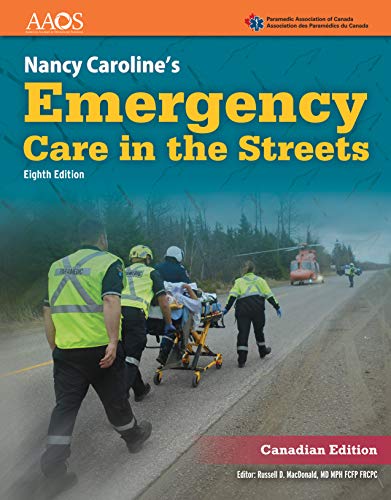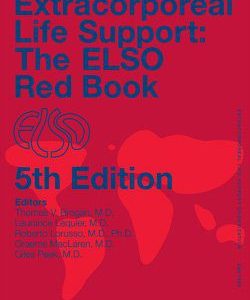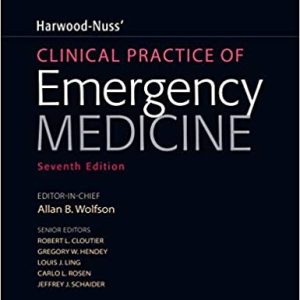Description
State-of-the-Art Medical Content Based on the National Occupational Competency Profiles and the latest CPR/ECC Guidelines, the Eighth Edition offers complete coverage of every competency statement with clarity and precision in a concise format that ensures comprehension and encourages critical thinking. Detailed explanations of current practice and treatment provide an unparalleled clinical foundation for a successful career as a paramedic and beyond. Relevant medical concepts are presented to ensure students and instructors have accurate, insightful interpretation of medical science as it applies to prehospital medicine today. Application to Real-World EMS Through evolving patient case studies in each chapter, the Eighth Edition gives students real-world scenarios to apply the knowledge gained in the chapter, clarifying how the information is used to care for patients in the field, and pushing students to engage in critical thinking and discussion. Essential skill content is portrayed in detailed steps that are the ideal complement to the National Occupational Competency Profiles. A Foundation for Life The Eighth Edition provides a comprehensive understanding of anatomy, physiology, pathophysiology, medical terminology, and patient assessment. Clinical chapters discuss application of these key concepts to specific illnesses or injuries, using context to refine and solidify the foundational knowledge. Dynamic Technology Solutions Navigate 2 unlocks engaging tools that enable students and instructors to chart a swift path to success.
About the Author
With more than 38,000 members, the American Academy of Orthopaedic Surgeons (aaos.org or orthoinfo.org), is the premier not-for-profit organization that provides education programs for orthopaedic surgeons and allied health professionals, champions the interests of patients and advances the highest quality of musculoskeletal health. Orthopaedic surgeons and the Academy are the authoritative sources of information for patients and the general public on musculoskeletal conditions, treatments and related issues. More than one in four Americans have bone or joint health problems, making them the greatest cause of lost work days in the U.S. When orthopaedic surgeons restore mobility and reduce pain, they help people get back to work and to independent, productive lives. Orthopaedic surgeons keep this “Nation in Motion.” To learn more about A Nation in Motion campaign, or to read hundreds of patient stories or to submit your own story, visit ANationInMotion.org.
Established in 1988, the Paramedic Association of Canada is Canada’s only EMS organization of prehospital regulators. Currently comprising over 14,000 practitioners located in the British Columbia, Alberta, Saskatchewan, Manitoba, Ontario, Quebec, New Brunswick, Yukon, and the Canadian Armed Forces, the PAC promotes quality and professional patient care through working relationships among organizations with similar interests.
Nancy Lee Caroline was born in a Boston suburb to Leo and Zelda Caroline in 1944. Nancy had a strong social conscience and devoted her life to medicine, teaching, and her patients—and she had a superb sense of humor. She has often been rightly called the Mother of Paramedics because of her dedication to paramedic education. She died of multiple myeloma at age 58 in 2002. Nancy’s medical career began at the young age of 15 in the pathology laboratory of the famous Benjamin Castleman, MD, at Massachusetts General Hospital, where she conducted medical research long before she entered college. Nancy majored in linguistics at Radcliffe College, and received her MD from Case Western Reserve University in 1977. Thereafter she took a fellowship in Critical Care Medicine at the University of Pittsburgh. It was here that she began her groundbreaking work in paramedicine. Around that time, the late Peter Safar, MD, was overseeing a US Department of Transportation grant to create a curriculum for paramedics. Dr. Safar offered Nancy an opportunity, as medical director of Freedom House Enterprises Ambulance Service, to train paramedics chosen from a group of African-American men who did not have a chance to complete their high school educations. Nancy was extremely successful—so successful that she was asked to write a curriculum for paramedic training, a curriculum that was published as the first edition of Emergency Care in the Streets. The list of Nancy’s other accomplishments is long. She served as the first medical director of Israel’s Red Cross society, Senior Medical Officer of the African Medical and Research Foundation (AMREF), consultant for the League of Red Cross Societies, director of medical programs for the American Joint Distribution Committee in Addis Ababa, medical consultant for the Center for Educational Technology, and adjunct professor at the University of Pittsburgh’s medical school. She also performed significant volunteer work focused on humanitarian efforts, such as providing better nourishment and health care to orphans and founding a hospice program in Upper Galilee. Nancy left the world too soon, but unquestionably left the world a better place.
Dr. Russell MacDonald is a specialist in emergency medicine and is Canada’s first sub-specialist in emergency medical services (EMS). He completed his Royal College Emergency Medicine Residency training at Queen’s University in Kingston, Ontario, and this EMS Fellowship at Boston EMS, in Boston, MA. He also has a Master Degree in Public Health from Boston University. Dr. MacDonald has worked in tertiary care teaching centers and held academic appointments in emergency medicine in both Canada and the United States. His expertise includes transport medicine, disaster preparedness, and international health. Dr. MacDonald is the Medical Director of the Research Program at Ornge Transport Medicine in Toronto, Ontario. He teaches advanced and critical care paramedics at Ornge, and is a member of the Canadian Medical Associations’ Conjoint Accreditation Services team that conducts accreditation surveys for paramedic training institutions. Prior to moving to Toronto, Russell was the Provincial EMS Medical Director, Emergency Services Branch, Manitoba Health in Winnipeg, Manitoba. He was also a flight physician with Manitoba Lifeflight in Winnipeg and with STARS in Edmonton, Alberta. Russell currently practices emergency medicine at Sunnybrook Health Sciences Center in Toronto, and is the Co-Director of the University of Toronto’s Emergency Medicine Fellowship Program. He is an Assistant Professor in the Faculty of Medicine and holds an appointment at the Institute of Medical Sciences. His academic responsibilities include transport medicine research and supervision of fellows and graduate students. Russell’s interests include patient safety and prediction of adverse events in transport medicine, impact of advanced airway interventions on patient outcome, and the relationship between public health and emergency services. He has a number of peer-reviewed publications and grants for EMS and transport medicine research, and is an invited speaker at numerous national and international conferences in EMS, transport medicine, and critical care. Russell is one of only two Canadians on the editorial board of Prehospital Emergency Care, the leading peer-reviewed EMS medical journal.





Reviews
There are no reviews yet.